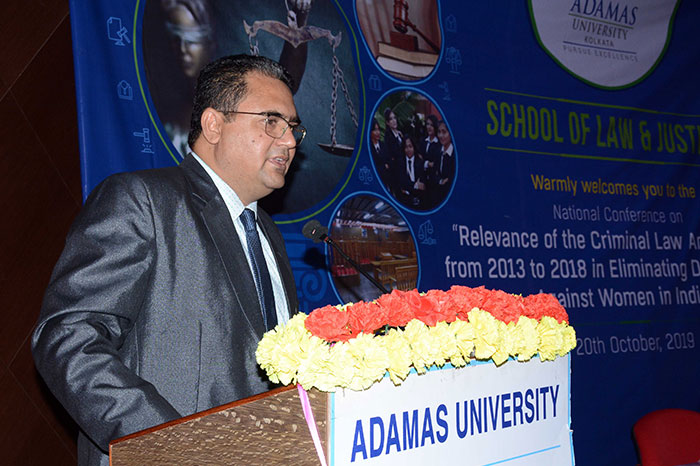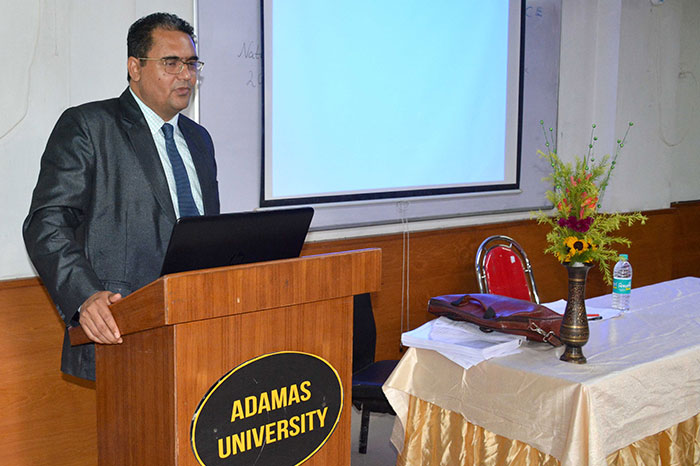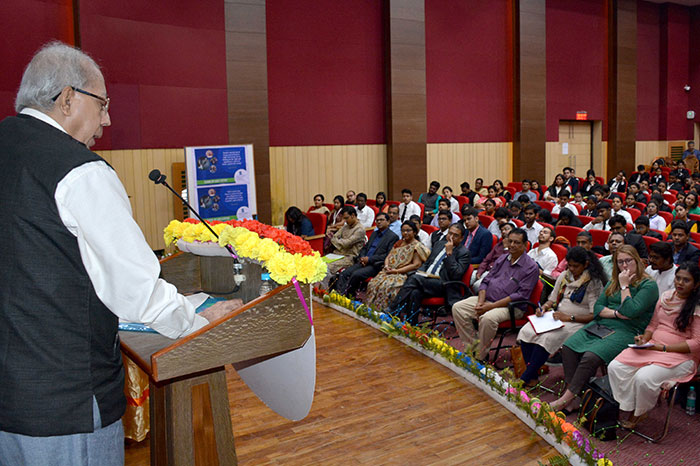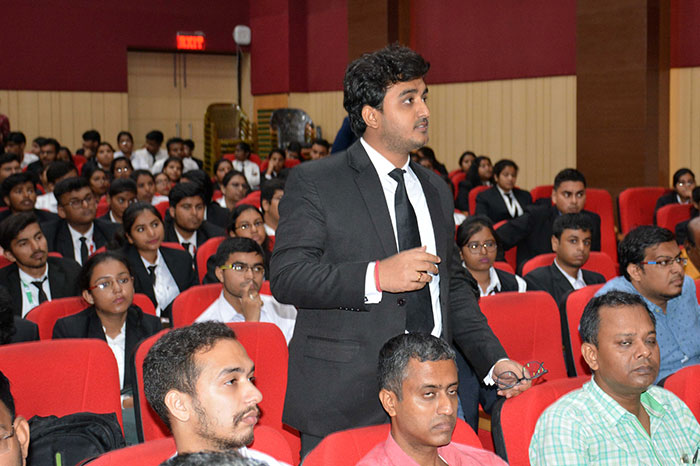Adamas University’s School of Law and Justice organizes national conference to examine whether the Amendments in laws have acted as an effective deterrent and what more should be done to curb atrocities against women.
Sunday: October 20, 2019 – The School of Law & Justice, governed by Adamas University is organizing a National Conference entitled; The Relevance of Criminal Law Amendments from 2013 to 2018 in Eliminating Discrimination against Women in India today at the University Auditorium.
Eminent legal luminaries are set to participate in the Conference. Hon’ble Mr. Justice S. P. Talukdar, Former Judge, High Court at Calcutta, Prof. (Dr.) Dipa Dube, Rajiv Gandhi School of Intellectual Property Law, IIT Kharagpur; Prof. (Dr.) Sarfaraz Ahmed Khan, Director, Symbiosis Law School, Hyderabad; Prof. (Dr.) Mohammadi Tarannum, Vice Principal, Surendranath Law College; Mr. Saptarshi Biswas, Director, Justice Solution, International Justice Mission, along with Prof. (Dr.) Jyotsna Yagnik, Mentor, designated Dean and Director, School of Law & Justice, Adamas University and Former Principal District Judge; Prof. Mr. Samit Ray Hon’ble Chancellor Adamas University; Prof. (Dr.) Madhusudan Chakraborty, Hon’ble Vice Chancellor Adamas University, would be deliberating and sharing their valuable opinion.
It has almost been seven years since the horrific gang-rape of a female physiotherapy student on December 16, 2012, inside a private bus in New Delhi that shook the conscience of the entire nation. An agitated country took to the streets and the cumulative anger was directed not only against the rapists, but also to the society, the police, and the justice system in India. It resulted in the then Government to immediately set up an inquiry Commission, presided by Justice Verma, Chief Justice of India, to scrutinize and firm-up the existing legislation, and to suggest changes to minimize crimes against women. The Criminal Law (Amendment) Act, 2013, and the “Guidelines and protocols: Medico-legal care for survivors/victims of sexual violence” were introduced as a direct result of the Committee’s reports and is considered to be a watershed moment in India’s legal history. These amendments introduced new provisions in the Indian Penal Code 1860, Code of Criminal Procedure 1973 and Indian Evidence Act 1872. The biggest change being the expansion of the definition of rape.
The Nirbhaya rape case resulted in skepticism about the trial of juveniles in such heinous crimes and thus, further Amendments were introduced to deal with juvenile offenders with ‘The Juvenile Justice Act 2015’.
Expressing deep appreciation for the School of Law & Justice for organizing such a pertinent conference, Prof. Mr. Samit Ray Hon’ble Chancellor Adamas University, said: “As a new-age university that aspires to impart finest quality education to young minds, we at Adamas University have gender sensitization programmes as part of our University culture. We hope, that our students would not carry the burden of ingrained parochialism Indian society is infamous for.”
The one-day Conference is being divided into various sessions with each session themed upon a topic for discussion. From the relevance and impact of the Criminal Law Amendments, to the societal challenges of real-life implementation of gender equality – the Conference will discuss all.
Delivering his Title Lecture, Hon’ble Justice S. P. Talukdar said: “Harsher punishment does not mean lesser crime. Crime rate has not come down. Women constitute 50% of the world population it is even for that reason equality has to be granted in any case. Discrimination based on sex does exist but we do not recognize that. Gender discrimination is there we need to be sensitive. Even inserting death sentence in law has not reduced the offences against women. Character of women and previous sexual experience are not relevant. Proper infrastructure is needed to implement the law. Judge population ration is poor in India.”
Prof. (Dr.) Jyotsna Yagnik, Mentor, designated Dean and Director, School of Law & Justice, Adamas University, says: “Though for paucity of time, the conference is a national conference, the issue to be deliberated upon is international and is connected and has reference to the International Covenants of Human Rights to which India is a signatory. Indian societal mindset needs a sea change for effecting gender justice in its true spirit. We have miles to go before we sleep. It is hoped that the discussions and deliberations to be undertaken today will put forward a lot many fruitful suggestion, solution and the way forward.”
For further information, please contact:
Srishita Ghosh – 9038771417
Subhajit Chakraborty – 8777525200
Ripon Bhattacharya – 8240123791 (School of Law & Justice)
























